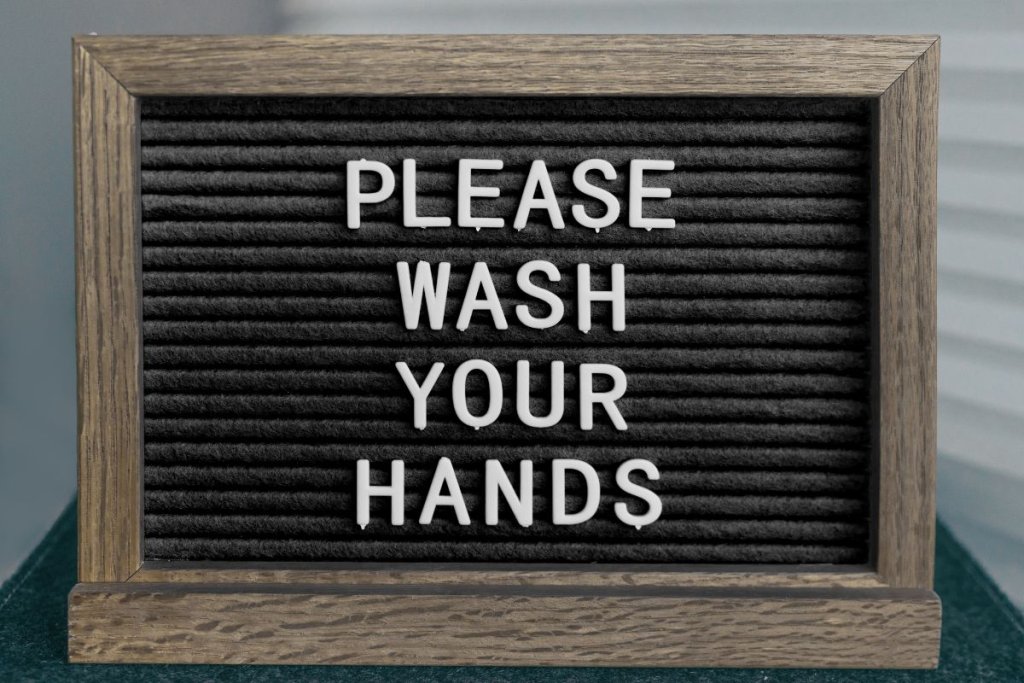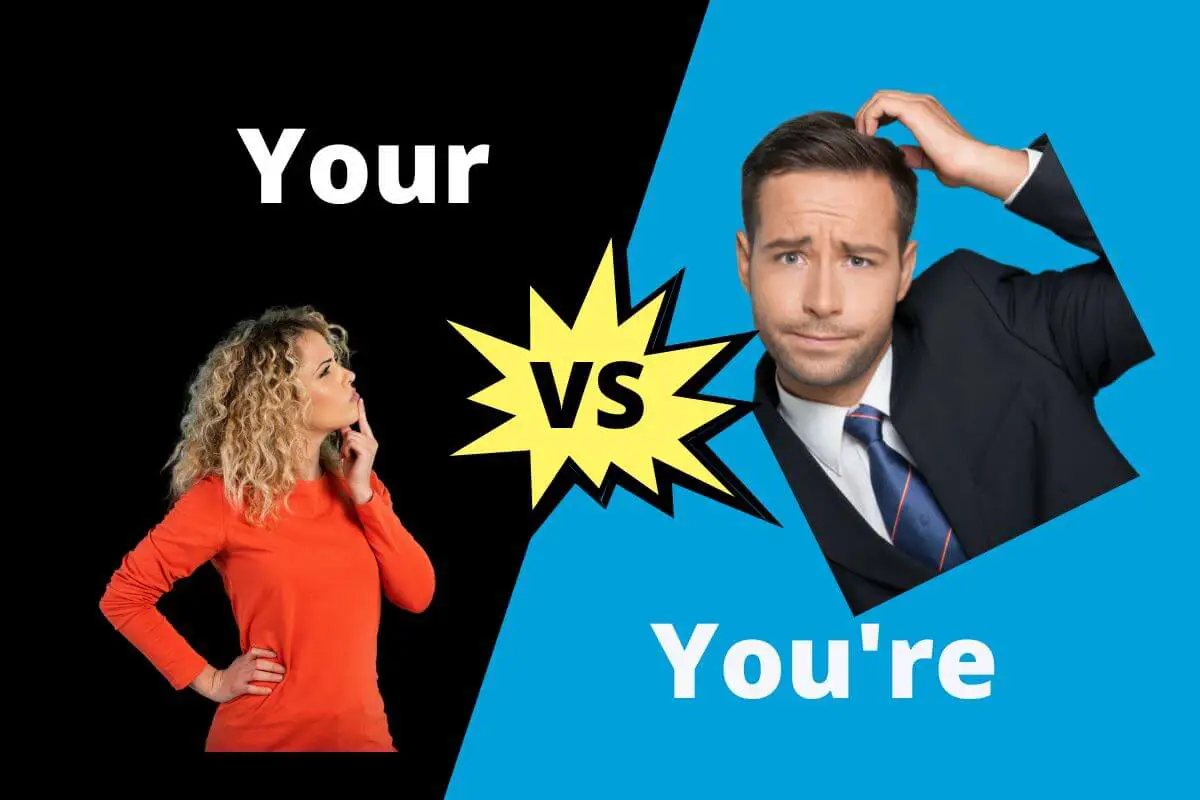The main difference between your and you’re is that your is a possessive adjective and you’re is a contraction that means you are.
Continue reading to find out the difference and learn how to use your and you’re in any sentence.
Table of Contents
Your vs You’re
| Your | vs. | You’re |
| The word “your” is a 2nd possessive adjective that emphasizes another person’s presence or proprietorship of something. In other words, “your” conveys a sense of ownership. | Meaning | The term you’re is short for the phrase you are. You can only use it for this. It consists of two words joined together to form a new word, with the sign (‘) replacing the letter “a.” |
| If you’re unsure if the word “your” belongs in the phrase, check to see if a noun is present nearby. As mentioned before, because your is an adjective, it will modify a noun close by. | Usage | You’re is a contraction of you+are. If you remove the contraction and the sentence still makes sense, it is probably the correct word. |
| This is your car. Your denotes possession of the car. | Example | You’re an amazing person. Here you’re describes the quality. |
Difference Between Your and You’re
Different Meanings
A possessive adjective is an adjective that modifies a noun by indicating who owns or has possession of it.
Example: The possessive form of the adjective “his” in the phrase, “Andrew misplaced his keys,” shows that the keys are owned by Andrew.
Your is a Possessive Adjective
The word “your” is a second-person possessive adjective that emphasizes another person’s presence or ownership of something. In other words, “your” shows a sense of ownership. You can use the pronoun “your” with nouns in both the singular and plural sense.

You’re is a Contraction
The term “you’re” is shortened from the phrase “you are.” It’s never used to show ownership. “You’re” consists of two words joined together to form a new word, with the letter “a” being replaced by the apostrophe symbol.
If you replace the term “you’re” in the statement with the words “you are,” the phrase should still make sense as proof that your usage of the word you’re is accurate.
What is a Contraction?
A contraction merges two or more words by omitting certain letters and often adding an apostrophe in place of the missing letter. The only words that may be contracted are pronouns (I, he/she/it, they) and modal verbs, which are often tiny and frequent.
Contractions function as a single word even when they stand in for many words. The apostrophe in a word makes it easy to identify it as a contraction.
Usage
If you’re unsure if the word “your” belongs in the phrase, check to see if a noun is present nearby. As mentioned before, because “your” is an adjective, it will modify a noun close by. This check can be slightly difficult, though.
Example: Your/you’re car is cool!
“Car” is a noun that comes right after the word, so this means we should use “your.”
However, the next review is simpler.
Whatever word you believe should be there, try replacing it with “you are” to see whether the statement still makes sense. Use “you’re” if it still makes perfect sense. If it doesn’t, you can use “your” in its place.
Example: Your/you’re car is cool!
If you replaced the word with “you are,” the sentence would say, “You are car is cool.” This does not make sense, so “your” should be used.
Avoid Contractions in Formal Writing
Because many professors and lecturers disapprove of contractions in official writing, you should avoid using contractions unless it’s informal writing. Some examples of informal writing include blogging, emails between friends, and social media.

More Examples of Your versus You’re
Example 1: This is your car.
In this sentence, the word “your” describes the possession of a vehicle. It answers the question, who does this car belong to?
Example 2: You’re a fantastic person.
In this example, the word “you’re” combines you and are. Here it is connected via a contraction (an apostrophe).
Learning homophones may be challenging and time-consuming. If you found this article helpful, check out our post comparing to versus too.

